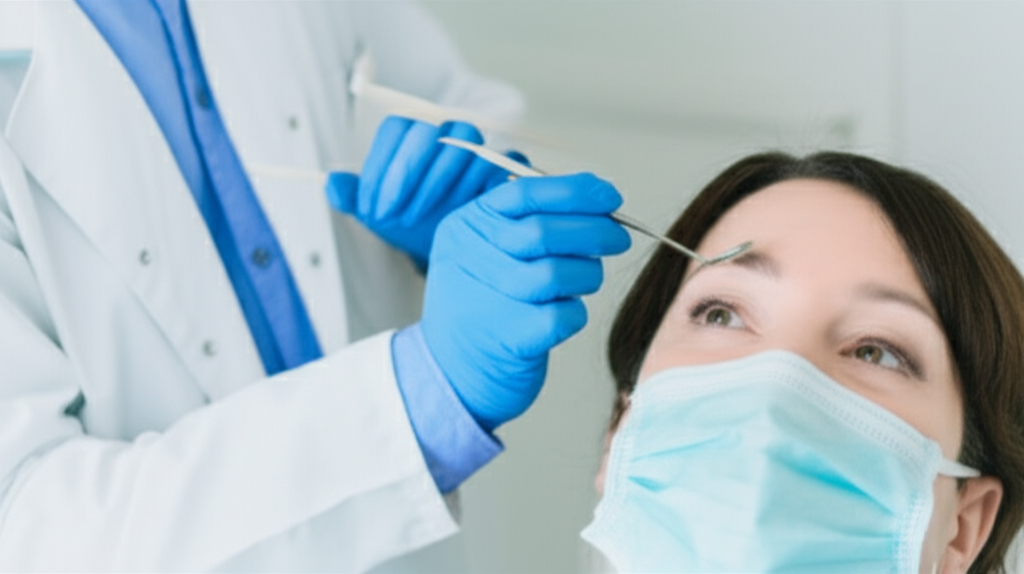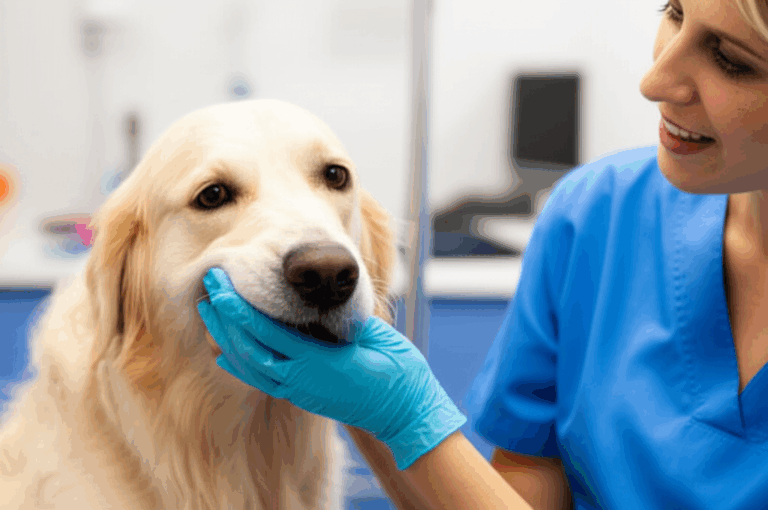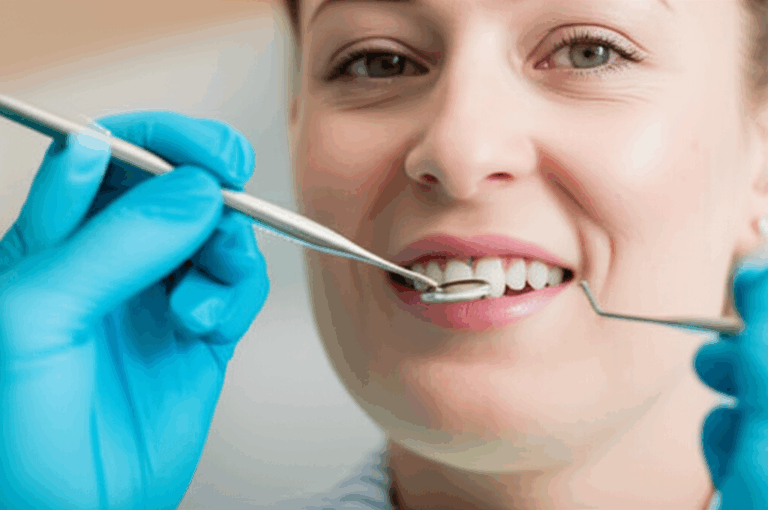
Are Dentists Medical Doctors? Your Clear, Friendly Guide To Who Does What
You have a simple question that shouldn’t need a medical dictionary. Are dentists medical doctors? You see a white coat and the word “doctor” on a name tag and your brain says sure. Then someone says no, and now you’re not sure.
Here’s the short answer. Dentists are doctors. They finish doctoral training and get a professional doctorate like DDS or DMD. They aren’t “medical doctors” in the MD or DO sense because they go to dental school, not medical school. They have a different license and area of focus. Both are skilled at treating disease, but they work on different body parts and have different schooling and licenses.
You deserve a clear breakdown. This guide will show what the titles mean, how dentists and medical doctors train, where their work meets, and when you should see one or the other.
In This Article
The Doctor’s Title: What “Doctor,” “Medical Doctor,” DDS, DMD, MD, and DO Mean
Question
So what does it really mean to be a “doctor,” and how is a “medical doctor” different?
Explain
“Doctor” is a general title. It can mean clinical doctorates like DDS or DMD in dentistry, or MD and DO in medicine. It can also mean academic doctorates like a PhD. In health care, you mostly meet clinical doctors who treat patients.
- Medical Doctor means a doctor with an MD or a DO degree. MD stands for Doctor of Medicine. DO stands for Doctor of Osteopathic Medicine. Both go to medical school and do residency in things like internal medicine, pediatrics, surgery, or neurology.
- Dentist means a doctor with a DDS or a DMD. DDS is Doctor of Dental Surgery. DMD is Doctor of Dental Medicine. The degrees are the same — schools just pick which one you get. Dentists study in dental school and mainly focus on the mouth, teeth, gums, jaws, and parts of the head and neck.
You may also hear old terms like stomatologist in other countries. Stomatology means the study of the mouth and its problems. Modern U.S. programs use DDS or DMD.
Guide
The easy rule: If the problem is with your mouth, teeth, gums, or jaws, a dentist is your main expert. If the issue is for the whole body or parts outside your head and neck, see a physician. Sometimes, oral and maxillofacial surgeons cross both fields.
Empower
Call your dentist office and ask about your symptoms — they’ll let you know who’s best to see first.
Dental School vs Medical School: Education and Training
Question
Do dentists go to medical school? How does dental school stack up to medical school?
Explain
Dentists and physicians both work through tough science classes. Their paths split after college.
The Dental Path: DDS/DMD
- Before dental school: Classes in biology, chemistry, physics, anatomy, and lab work. Many finish college with these classes.
- Dental school: Four years. First two years: study the body, drugs, diseases, and especially head and neck. They also learn about oral medicine and dental x-rays. Last two years: learn hands-on skills like fillings, crowns, gum treatments, root canals, prosthetic teeth, pediatric dentistry, simple surgery, anesthesia, and treating patients with other medical issues.
- Degree: DDS or DMD. Same thing, different name.
- Extra training: Some dentists do a General Practice Residency (GPR) or Advanced Education in General Dentistry (AEGD) for a year, with more hospital work and training. Dental specialty residencies last 2–6 years and include orthodontics, periodontics, endodontics, prosthodontics, pediatric dentistry, oral surgery, oral medicine, oral pathology, dental anesthesia, and public health dentistry.
Oral and Maxillofacial Surgery (OMFS) is special. Some programs are 4 years, others 6 years. Six-year OMFS includes medical school and gives both an MD and an OMFS certificate.
The Physician Path: MD/DO
- Before medical school: Classes in biology, chemistry, physics, math, social sciences, and time shadowing doctors. Usually after a bachelor’s degree.
- Medical school: Four years. First two: study all organs and parts of the body. Last two: work in many medical fields (internal medicine, surgery, children’s care, women’s health, mental health, etc).
- Degree: MD or DO.
- Residency/Fellowship: Required 3–7+ years, depending on the specialty. Some examples: family medicine, pediatrics, general surgery, heart medicine, brain medicine, and anesthesia.
Guide
The big difference: Medical school covers all body systems, then you pick a specialty. Dental school goes deeply into the mouth and head area from the start and teaches more procedures sooner.
Empower
If you want to pick between being a dentist or physician, try shadowing both. Ask about what they do every day. Dentists often enjoy hands-on work, fixing teeth, and long patient relationships about oral health. Physicians care for the whole body and often work in hospitals or clinics.
Scope of Practice: What Dentists and Physicians Can Do
Question
What can dentists do legally, and how is that different from what a medical doctor can do?
Explain
Every profession has its own “scope” — what things they’re allowed to do.
Dentist’s Scope
- Find and treat diseases in the mouth, teeth, gums, jaws, and nearby head/neck parts
- Deal with tooth pain and mouth infections
- Do fillings, crowns, bridges, and dentures
- Do root canals
- Treat gum disease
- Place dental implants
- Offer braces and aligners
- Test and treat mouth diseases or send for biopsy or care by a specialist
- Do oral and some simple jaw surgeries
- Prescribe common dental medicines like antibiotics, painkillers, antifungals, and anxiety pills
- Give local anesthesia and some forms of sedation if allowed
- Notice body diseases that show up in the mouth and send to a doctor
Physician’s Scope
- Find and treat diseases in all body parts
- Prescribe a huge variety of medicines
- Do all kinds of surgeries (depending on the specialty)
- Care for patients in the hospital
- Handle tough body-wide problems
Overlap and Working Together
Dentists and doctors can both work on mouth, head, and neck issues. Oral surgeons might work alongside ear-nose-throat (ENT) doctors or plastic surgeons. Oral medicine specialists often work with dermatologists or cancer doctors. Dentists sometimes spot diseases like diabetes by seeing signs in your mouth.
Case Example
A patient has swollen, bleeding gums and mouth sores that won’t heal. The dentist treats the gums, but notices signs of diabetes and sends the patient to a doctor. Tests show the patient has out-of-control blood sugar. After both treat the patient, their gums and overall health improve. This is a good example of dentists and doctors teaming up.
Guide
If your problem is in your mouth, see a dentist. If you have fever, chest pain, trouble breathing, or a body-wide issue, call your doctor. If swelling below your jaw makes it hard to breathe or swallow, go to the ER. Dentists and doctors will refer you if the problem is out of their hands.
Empower
Don’t ignore face swelling, fever, or spreading infection in your mouth. These can become life-threatening.
Licensing, Exams, and Professional Recognition
Question
How do dentists and doctors get their licenses, and who watches over them?
Explain
Dentistry and medicine each have their own systems.
- Licensing boards: States have Dental Boards for dentists and Medical Boards for doctors. These boards hand out licenses and check up on complaints.
- Exams: Dentists must pass national tests like the INBDE (or the old NBDE) and a hands-on test. Doctors take the USMLE (for MDs) or COMLEX (for DOs).
- Titles: Dentists are DDS or DMD. Doctors are MD or DO. Oral and Maxillofacial Surgeons may have both a dental and a medical degree.
- Hospital work: Most dentists work in clinics or their own office. Some get hospital rights, especially oral surgeons and dental anesthesiologists. Doctors are in hospitals more often.
- Legal authority: Both are allowed to diagnose, make treatment plans, prescribe within scope, and do surgery they’re trained for.
Guide
To check a license, look up your state dental or medical board. You can also search for groups like the American Dental Association (ADA) or American Medical Association (AMA).
Empower
Ask your provider about their training or if they’re comfortable with your treatment. Good clinicians are open about this and will recommend a specialist if needed.
Collaboration and Overlap: Oral Health and Whole‑Body Health
Question
Is dentistry part of medicine or its own field, and does it matter for your care?
Explain
Dentistry and medicine started together but then split. In many places around the world, dentistry is seen as part of medical science even with a separate degree. The important thing isn’t who owns a problem—it’s teamwork. Oral and general health connect in many ways. Gum disease can be linked to diabetes. Mouth bacteria can impact heart health or pregnancy. Dentists learn a lot about the body and medicine that’s useful in the dental chair; doctors learn to check the mouth and find signs there even if they don’t treat dental problems themselves.
Specialists like periodontists or endodontists are all dentists, not medical doctors, but they finish dental school and then train further. Oral and Maxillofacial Surgeons are dentists who specialize even more, and some get an MD too. ENT surgeons are medical doctors. Both might treat jaw fractures, depending on the hospital.
Guide
Your providers should talk to each other. Dentists may contact your heart doctor if you’re on blood thinners before pulling a tooth. Doctors may ask dentists for a checkup before surgery or cancer treatment.
Empower
Always tell your dentist and doctor about your full list of meds and any changes. Some medicines can affect dental treatment.
When To See a Dentist vs a Medical Doctor
Question
I’m not sure who to call first. How do I decide?
Explain
See a dentist if you have:
- Tooth pain or a broken tooth
- Gums bleeding, swelling, or a mouth abscess
- Jaw pain from chewing or TMJ problems
- Mouth sores that last more than two weeks
- Want to fix your smile (veneers, whitening, etc)
- Questions about implants, dentures, bridges, or aligners
See a doctor or urgent care if you have:
- Fever and face swelling, trouble breathing
- Swelling under your tongue or neck that spreads
- Hit to the head with passing out or injury elsewhere
- Severe dehydration, chest pain, or fainting
- A new drug reaction with rash or breathing trouble
See both (or ask either to refer) if you have:
- Diabetes plus gum issues or lots of infections
- Immune disorders with mouth sores
- Head/neck cancer, or a sore that won’t heal
- Sleep apnea worries (dentists can make mouthpieces, doctors do the tests)
- Big jaw or facial surgeries
Guide
Start with where the problem is. If it’s likely dental, call your dentist. If it’s everywhere else, call your doctor. If you aren’t sure, either will point you to the right place.
Empower
If you’re stuck, call the one you think fits best. They’ll send you on if needed.
Common Questions People Ask
Question: Are dentists doctors?
Explain: Yes. Dentists have a doctorate (DDS or DMD) and treat diseases in the mouth.
Question: Are dentists medical doctors?
Explain: No, not in the sense of being an MD or DO. They’re doctors of dental medicine or dental surgery.
Question: Do dentists go to medical school?
Explain: No. They go to dental school. Except, oral surgeons in some programs do both.
Question: Is dentistry a branch of medicine?
Explain: Dentistry is its own field in health but overlaps a lot with medicine in science and care.
Question: What degree does a dentist have?
Explain: DDS or DMD. They’re the same; just depends on the school.
Question: Can dentists prescribe medication?
Explain: Yes—things like antibiotics, painkillers, anti-fungals—but just for dental problems.
Question: Can dentists diagnose diseases of the body?
Explain: Dentists can notice signs in the mouth and refer you to a doctor, but they don’t treat diseases like diabetes or heart trouble.
Question: What is an oral medicine specialist?
Explain: A dentist who got extra training to treat hard-to-diagnose mouth problems, face pain, gland problems, and disease signs that show up in the mouth.
Question: How do dental and medical board exams differ?
Explain: Dentists take the INBDE/NBDE and a skills test. Doctors take the USMLE/COMLEX. Both must keep learning over the years.
Question: Do dentists work in hospitals?
Explain: Some do. Oral surgeons and dental anesthesiologists do hospital work. Most dentists are in clinics.
Question: What about orthodontists, periodontists, endodontists, etc?
Explain: They are specialist dentists, not medical doctors.
Question: Can someone be both an MD and a DDS?
Explain: Yes, but it’s rare—usually only oral surgeons do both.
Question: How long does training take?
Explain: Both dental and medical school are four years after college. Dental residencies range from 1–6 years; medical residencies 3–7+ years.
Question: What about student debt and job outlook?
Explain: Both can have high school debt. Job outlook is steady for both fields.
Guide
If thinking about these careers, look at what it costs, what work you’d do, and get shadowing experience.
Empower
Choose the career that fits your skills and how you want to help others.
The Dental Team, Technology, and How Dentists Deliver Care
Question
Who helps your dentist, and how are crowns, bridges, and other things made?
Explain
New teeth and smile makeovers aren’t magic. Dentists work with dental technicians and dental labs.
- Your dentist figures out what you need and prepares your teeth.
- For things like crowns, bridges, or dentures, the dentist prepares the area and takes a scan or mold.
- It goes to a dental lab where skilled workers use ceramics or other materials to make it. Many labs use computer-aided design and 3D printing now.
- The dentist checks the final fit and comfort when it’s ready.
You can learn more about the details of a crown and bridge dental laboratory, or what a veneer lab can do for smile design. For implant work, a dentist partners with an implant dental laboratory for custom parts.
Guide
Ask your dentist about which lab they use and what materials are best for you.
Empower
If a new tooth feels odd, call your dentist. A quick adjustment can help a lot.
Dental School vs Medical School: A Side‑by‑Side Snapshot
Question
Can you give me a fast comparison?
Explain
Here’s a quick look:
- Degrees: DDS or DMD for dentists; MD or DO for doctors.
- School after college: 4 years for both.
- Main study: Dentists focus deeply on the mouth, doctors on the whole body.
- Hands-on work: Dentists do fillings, extractions, and other care during school. Doctors do hands-on during residency.
- Residency: Optional for general dentists (but a good idea), required for specialists. Mandatory for doctors.
- Prescribing: Dentists—dental problems only. Doctors—anything they’re trained for.
- Tests: Dentists—INBDE or NBDE, skills test. Doctors—USMLE or COMLEX.
- Licensing: State dental boards for dentists, state medical boards for doctors.
- Where they work: Dentists mostly in clinics, sometimes hospitals; doctors in clinics, hospitals, surgery centers.
Guide
This snapshot can help you explain to others why dentists are doctors but have a different job than your family doctor.
Empower
Knowing what each does helps you get the right care.
The Bigger Picture: Why the Distinction Matters and Why It Doesn’t
Question
Does this difference change how I should see dentists and doctors?
Explain
It does and it doesn’t. You want the expert who does your needed treatment every day. You wouldn’t want a heart doctor to fix your tooth and you wouldn’t want a dentist to treat your pneumonia. One doesn’t outrank the other—both are trained professionals.
Dentists are your main provider for oral care. They stop problems from starting, fix teeth, replace missing teeth, screen for mouth cancer, and treat infections that can make you sick. Doctors keep your whole system in shape and manage things that affect your whole life.
Guide
Follow your dentist for your mouth care, and your doctor for everything else. Expect them to work together on crossover issues.
Empower
Go to your regular dentist and doctor appointments to stay healthy.
Practical Guidance: What You Can Do at Home vs Seeing a Professional
Question
What can you do yourself, and when should you see a professional?
Explain
At home:
- Brush your teeth twice a day with fluoride toothpaste
- Floss or use other cleaners between your teeth every day
- Use a soft toothbrush
- Watch out for too much sugar or acid in food and drinks
- Wear your night guard if the dentist recommends one
- Call your dentist early if you notice problems
Professionally:
- Get full dental exams with x-rays as needed
- Cleanings and gum care
- Fillings, crowns, bridges, and root canals
- Dental implants or dentures if teeth are missing
- Braces or aligners if needed
- Care for mouth sores or tough mouth problems
- Work together with doctors if your health history is complex
Guide
Try simple stuff at home for small problems. If it lasts or gets worse, book a dental visit. Pain, swelling, or broken teeth need fast care.
Empower
Daily habits are your superpower. Dental visits catch what you can’t see.
Real‑World Scenarios To Help You Choose
Scenario 1: Throbbing tooth and cheek swelling
- Who to see: Dentist right away. If there’s fever or trouble breathing, go to urgent care or the ER.
- Why: Could be an abscess. Bad swelling needs medical care.
Scenario 2: Dry mouth after new meds, more cavities
- Who to see: Dentist (for dry mouth and cavities), doctor (to talk about meds).
- Why: Many drugs dry out the mouth. Dentist and doctor should work together.
Scenario 3: Morning jaw pain and headaches
- Who to see: Dentist (to check for tooth grinding/clenching), doctor (if headaches are severe or not dental).
- Why: Night guards can help the jaw. Some headaches are from something else.
Scenario 4: Mouth sore not healing
- Who to see: Dentist or oral medicine specialist (for checking and maybe a biopsy), doctor (if there are other symptoms).
- Why: Early checking is best.
Scenario 5: Missing tooth to replace
- Who to see: Dentist (to go over options like bridges, dentures, or implants). Sometimes an oral surgeon for more complex cases.
- Why: Dentists help plan and treat missing teeth.
A Quick Word About Materials and Procedures
Explain
Dentists use lots of tools for fixing and replacing teeth. Here’s some quick info.
- Crowns and bridges: Caps that cover or replace teeth; made from ceramic or other materials.
- Veneers: Thin layers that go on front of teeth to improve looks.
- Dental implants: Metal or ceramic posts that hold up replacement teeth.
- Night guards: Trays to protect teeth if you grind at night.
If you’re curious about how they’re made, ask for pictures or a model. Your dentist can show you and explain what’s best for you.
Empower
If you have options, talk about the pros, cons, and costs with your dentist.
Sources You Can Trust
If you want reliable info check out:
- American Dental Association (ADA)
- American Medical Association (AMA)
- U.S. Bureau of Labor Statistics (BLS)
- ADEA and AAMC (for schooling info)
- Your state dental or medical board
Guide
Be careful with online forums or social media; official sources are safer.
Empower
Take questions to your visits. It’s your health.
Your Healthy Takeaway and Next Steps
Here’s what to remember:
- Dentists are doctors with DDS or DMD degrees—experts in mouth and jaw health.
- Medical doctors are MDs or DOs—experts in health for the whole body.
- Dental and medical school train for different jobs but need a strong science background.
- Dentists can prescribe and do some surgeries within their training. They team up with doctors when needed.
- Mouth health links to the rest of your health. Keeping up dental care helps your whole body.
What to do next:
- If you have a mouth problem, call your dentist and describe it.
- If you have other symptoms or an emergency, call your doctor or urgent care.
- Keep a list of your meds and share it.
- Get regular checkups—early care beats late repairs.
- Ask your providers to explain things in plain language. Get a second opinion for big choices if needed.
Final word
You don’t have to pick sides. Dentistry and medicine work together. Your dentist cares for the entryway to your body; your doctor cares for the rest. Both help you eat, smile, and stay healthy.
Note: This guide is for learning only. It’s not a substitute for advice from your dentist or doctor. If you have urgent symptoms, get help now.








